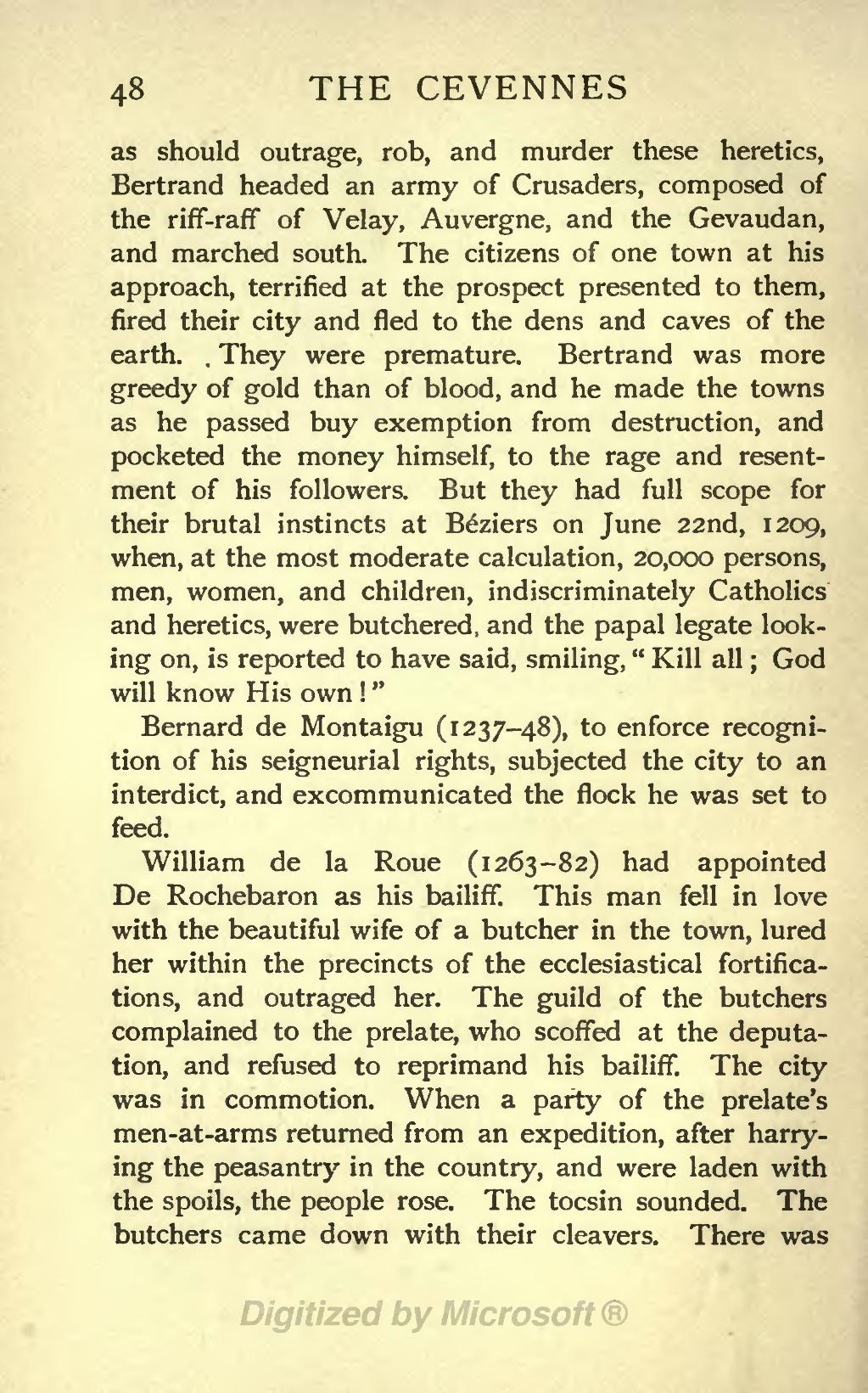as should outrage, rob, and murder these heretics, Bertrand headed an army of Crusaders, composed of the riff-raff of Velay, Auvergne, and the Gevaudan, and marched south. The citizens of one town at his approach, terrified at the prospect presented to them, fired their city and fled to the dens and caves of the earth. They were premature. Bertrand was more greedy of gold than of blood, and he made the towns as he passed buy exemption from destruction, and pocketed the money himself, to the rage and resentment of his followers. But they had full scope for their brutal instincts at Béziers on June 22nd, 1209, when, at the most moderate calculation, 20,000 persons, men, women, and children, indiscriminately Catholics and heretics, were butchered, and the papal legate looking on, is reported to have said, smiling, "Kill all; God will know His own!"
Bernard de Montaigu (1237-48), to enforce recognition of his seigneurial rights, subjected the city to an interdict, and excommunicated the flock he was set to feed.
William de la Roue (1263-82) had appointed De Rochebaron as his bailiff. This man fell in love with the beautiful wife of a butcher in the town, lured her within the precincts of the ecclesiastical fortifications, and outraged her. The guild of the butchers complained to the prelate, who scoffed at the deputation, and refused to reprimand his bailiff. The city was in commotion. When a party of the prelate's men-at-arms returned from an expedition, after harrying the peasantry in the country, and were laden with the spoils, the people rose. The tocsin sounded. The butchers came down with their cleavers. There was
